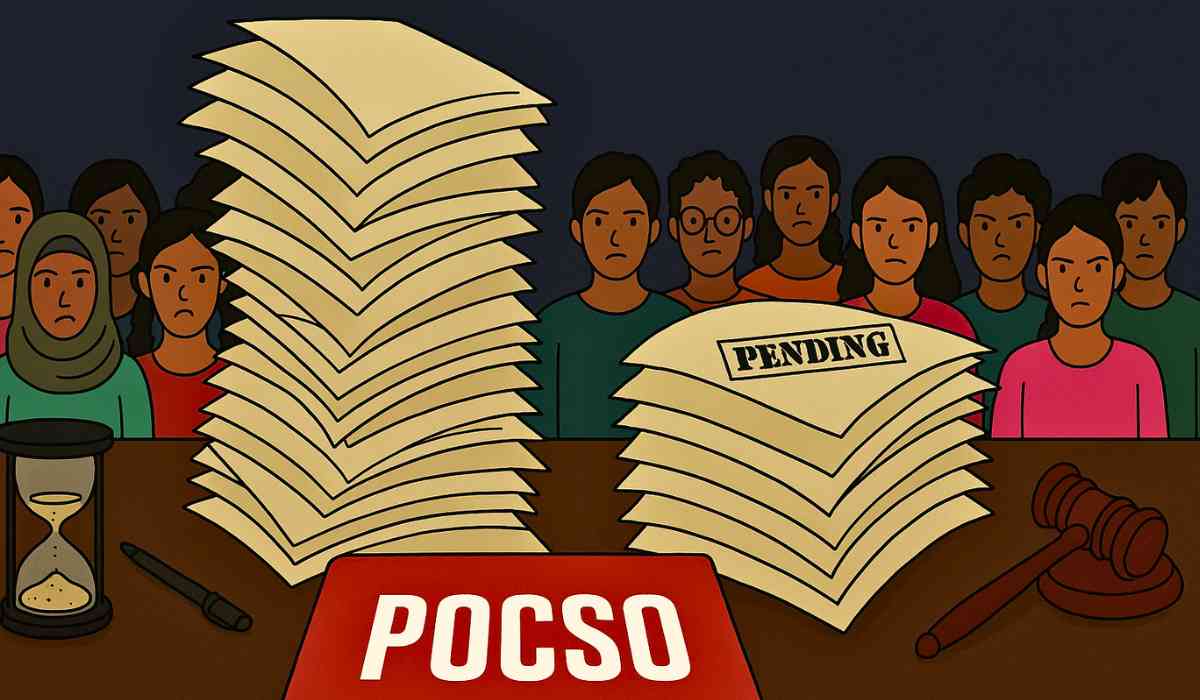In a landmark and highly debated judgment, the Supreme Court of India recently decided not to impose any jail sentence on a man convicted under the Protection of Children from Sexual Offences (POCSO) Act. The court, while upholding the conviction, emphasized that the victim—now married to the convict and mother to his child—had suffered more from a flawed legal process, social judgment, and lack of family support than from the offence itself. This unusual decision has sparked discussions about the balance between justice and compassion, and about the deep flaws in how society and the law handle sensitive cases involving minors.
What Happened in the Case?
The case began in 2018 when a man was charged under the POCSO Act for a relationship involving a 14-year-old girl. The girl, now an adult, is married to the convict and they have a child together. The Supreme Court found the man guilty under the POCSO Act but, after reviewing a report from an expert committee and hearing all parties, decided not to send him to jail.
The court said that the legal system and society had failed the victim. She was judged by society, abandoned by her own family, and faced immense pressure throughout the legal process. The victim, now emotionally attached to her husband and desperate to save her family, did not see the incident as a heinous crime. The court noted that at the time of the incident, she was not in a position to make an informed choice due to the shortcomings in society, the legal system, and her family.
Why Did the Supreme Court Make This Decision?
The Supreme Court used its special powers under Article 142 of the Constitution to do “complete justice” in this case. The court explained that while the law is strict and meant to protect children, the situation here was complicated by real-life relationships and the trauma caused by the legal process itself.
The court pointed out that the victim had suffered more from being judged, abandoned, and dragged through the courts than from the original incident. The judges said this case should be an “eye-opener” for everyone, highlighting the loopholes and failures in the legal and social systems.
What Does This Mean for POCSO Cases?

The POCSO Act is a strict law meant to protect children from sexual abuse. In most cases, convicts get harsh punishments, including long jail terms. However, this case shows that sometimes, the situation is more complex than the law can easily handle.
The Supreme Court’s decision does not mean that all POCSO convicts will escape jail time. The court made it clear that this was a special case, and that the law must still be followed strictly in most situations. The decision was based on the unique facts of this case, especially the victim’s current situation and the harm caused by the legal process itself.
Balancing Justice and Compassion
This case raises important questions about how the legal system should handle sensitive cases involving minors. On one hand, the law must protect children and punish offenders. On the other hand, the real-life impact of the legal process on victims and their families must also be considered.
The Supreme Court’s decision shows that sometimes, the law needs to be flexible to do what is truly just. The judges looked beyond the strict letter of the law and considered the real suffering of the victim. They saw that the legal process, meant to protect her, had instead caused her more pain.
However, this decision is not without controversy. Some people worry that it could set a dangerous precedent, making it easier for offenders to escape punishment. Others believe that it shows the need for reforms in how the legal system and society support victims, especially when they are young and vulnerable.
What Should Change?

The Supreme Court has directed the government to consider policy reforms to better protect victims and support them through the legal process. The court also set up an expert committee to help the victim make informed choices about her future.
This case highlights the need for:
-
Better Support for Victims: Victims of sexual offences, especially minors, need more support from their families and society, not judgment or abandonment.
-
Sensitive Legal Processes: The legal system must be more careful about how it handles sensitive cases, to avoid causing more harm to victims.
-
Policy Reforms: Laws and policies should be reviewed to make sure they protect victims and help them recover, not just punish offenders.
Final Note

The Supreme Court’s decision to spare a POCSO convict jail time is a rare and complex one. It shows that while the law must be strict to protect children, it must also be flexible enough to consider the real-life impact on victims and their families. The case is a reminder that justice is not just about punishment, but also about healing and support for those who have suffered.
This judgment should make us all think about how we can do better to protect and support victims of sexual offences, especially children. It is a call to action for society and the legal system to work together to create a safer, more compassionate world for everyone.
With inputs from agencies
Image Source: Multiple agencies
©️ Copyright 2025. All Rights Reserved. Powered by Vygr Media.






















